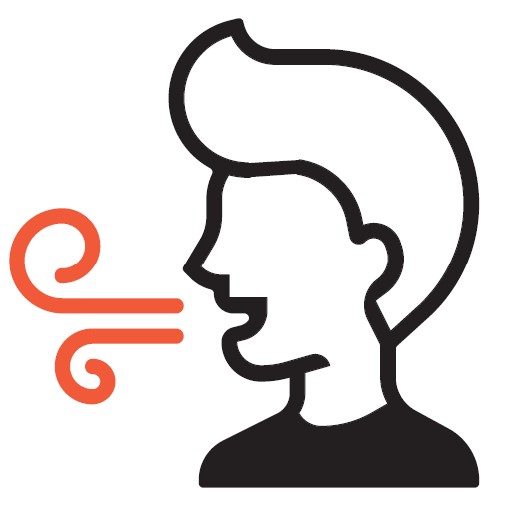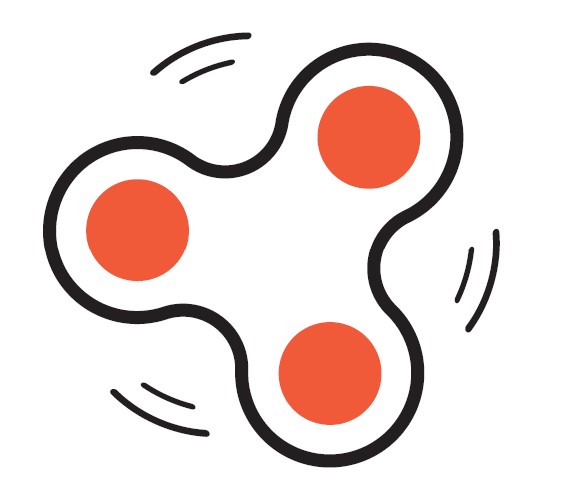Managing Anxiety

Managing Anxiety during COVID-19
Christie Alkin, Senior Occupational Therapist
Are you feeling on edge, like you’re on high alert?
Some former servicemen and women struggle with feeling on edge, feeling on high alert and feeling 'jumpy' after they leave the military, when there may not necessarily be an immediate threat to their safety. This may be as a result of being exposed to actual threat to life for a sustained period, or periods of time, and/or witnessing unimaginable or traumatic things whilst serving.
As a member of the Armed Forces, you were also trained to be prepared for action at any given moment and to expect and plan for the worst. On kinetic operations, to ‘switch off’ could mean death or serious injury for you or your buddies, and to be ‘sparking’, on edge and high alert, may have saved lives – to relax is dangerous. It is understandable therefore, that it would be difficult to turn the threat dial down after leaving the military, and even more so now that we are facing a new threat in the shape of COVID-19.
Even if you weren’t experiencing these feelings before, you may do so now as a result of this national emergency. Civilians and veterans alike, we are all under threat from this virus. Feeling on edge, alert, stressed and nervous is normal, and there are very few people who are not feeling this to some degree. It is a healthy human response to unfamiliar, unpredictable and dangerous situations
However, it is important to recognise that this threat response, if sustained or mismanaged, can impact on us physically and mentally, and cause us to behave in ways that are not always helpful for ourselves, our loved ones or the wider community.
This video and web page will discuss how we can better understand these experiences, and how we can manage them during this difficult time.
What is anxiety?
Anxiety is a word we use to describe the body’s fear response. This is a series of physical processes in the brain and body that happen in response to a threat. These processes are often described as the fight/flight/freeze response and it is this response that we experience in feelings of being on edge or high alert.
The kicker is that this response was intended to be triggered by an external and mostly immediate threat. However due to our sophisticated brains, it can also be triggered by memories of historical threats or imagined scenarios, predictions and worries about future threats (real or imagined), thoughts, feelings and relationships.
For some veterans, it is difficult to recognise feelings of fear or anxiety as you are trained to override them. Through training, you learn to channel your fears into controlled aggression and so may experience anger rather than anxiety when under threat.
Symptoms of anxiety
You can have all kinds of symptoms, physical and mental, when experiencing anxiety – here are some of the most common:
| Physical Symptoms | Mental Symptoms |
|---|---|
| Blurred or tunnel vision | Racing thoughts |
| Difficulty swallowing | Feeling unreal or detached from reality |
| Quick, shallow breathing | Losing sense of time and space |
| Tension in the jaw, grinding teeth | Expecting the worst |
| Tight chest | Fearing the safety of yourself and others |
| Loss of appetite | Feeling constantly worried, restless |
| Sweaty palms, shaking | Unable to concentrate |
| Increased heart rate | Difficulty remembering things |
| Increased sensitivity to sounds | Not sleeping well |
| Feeling weak and unsteady | You can’t ‘switch off’ |
| Nausea |
The thinking part
“Plan for the worst, hope for the best”. The military are skilled at planning operations, preparing for worst-case scenarios with multiple contingencies. Simultaneously, they are also incredibly positive in the belief that if they do so, as well as sticking to their drills and training, then they will succeed.
When anxious, our mind works in a similar way. Mental resources are oriented to threat. We draw on past dangerous or challenging experiences to help predict the future. We attend to everything that may be dangerous, challenging or negative aspects of our lives because the brain is wired to believe that if we think about the worst case, we can prepare for it and defend ourselves or find solutions.
This can be incredibly helpful when faced with a real and present threat and can mobilise us to act. However, when we are faced with hypotheticals or more complex problems out of our control, this way of thinking can have us running in circles in our minds, feeding the anxiety and making us feel less and less able to cope or helpless to act.
Have you noticed thoughts like this?
- It’s going to get me and those I love
- I can’t cope with this
- It’s never going to end and get worse
- We must stockpile
- It’s a conspiracy…
- I should be doing something to help
- I can’t do anything locked up in here
When we notice these thoughts we can help ourselves by interrupting them. There will always be some things we can control and things that we can’t. We cannot control how other people deal with COVID-19 but we can control what we do. Focus on what you can do, not what you cannot.
Why is it worse at the moment?
Like all of us you may be feeling that is difficult to prepare or adapt, and feel out of control. Your normal routine has changed and previous ways of coping with stress may have been prevented by the government restrictions, for example going to the gym, walking in the hills or meeting up with old military buddies.
Being confined to your home may mean that there is seldom time to yourself, and relationships in the household may have become strained and tense due to living in close quarters. Oryou may be living alone and feeling more disconnected from social networks.
The availability of news updates due to technology could also be triggering your anxiety i.e seeing people unwell, seeing hospital environments, seeing people not adhering to the rules.
What can I do to cope right now?
There are lots of things you can do at this point in time – we call them ‘the pillars to self-management'.
1. STAND DOWN. Follow instructions from reliable resources and limit the exposure to the news.
2. ROUTINE. Keep a balanced routine for yourself and/or family to include:
- work or achievement-based tasks
- self-development/learning
- connection and play with family and friends
- exercise
- alone time and relaxation
3. Nutrition.
Leading a healthy and balanced lifestyle is a great contributing factor to managing anxiety. Often common habits such as drinking caffeine, smoking, drinking alcohol, poor sleep and little exercise form a platform for poor mental health. Try to combat some of these habits by introducing a good diet, some exercise and helpful sleep hygiene where you can as it will help.
4. Give yourself a break!
Don’t expect to be feeling 100% calm and in balance right now. Be kind to yourself and everyone around you. Last thing you need is your internal Sergeant Major running riot and giving you a hard time. You’re doing the best you can, and if you feel sad, angry, frightened etc. It's ok, it’s normal and you should celebrate that you’re not a robot!
5. Observe and change your thoughts.
What we think can affect the way we feel. If we can change the way we think about something then we can begin to feel better about ourselves and our lives.
Our thoughts can often be unfair, biased, and negative, quite automatically. Using Thought Records we can practice noticing and identifying our negative automatic thoughts. You can then use thought challenging records to practice thinking in fair and balanced ways. With practice, thinking differently can become second nature.
How?
- Start paying attention to what is going through your mind
- Record some information about the situation or context in which you noticed a change in emotion or negative thought
- Describe your emotions and body sensations and rate the strength of feeling from 0-100% (100 being unbearably intense).
- Finally, record your thoughts, and images that came to mind at that moment or just prior to noticing a change in mood.
- Gently question the accuracy of these thoughts, or how helpful. Are there different ways to think about this? What is the evidence for and against this way of thinking?
This ability to think about your thinking is crucially important for making balanced decisions about how to act, and in managing difficult emotions.
Keep a track of your thoughts by using the Managing Thoughts worksheet below.
Additional Resources
- Managing Thoughts Worksheet - May 2020
6. Help soothe your anxious mind and body using your senses.
With all the changes to our environment, it is likely that our sensory system (what we see, hear, smell, taste etc) is adjusting to try and manage our body’s responses. It may be that you’re feeling over-stimulated which can lead to feeling anxious.
Our senses can help us:
- Relax / Calm down
- Feel more organised
- Be in tune with our body and the world
If you are experiencing anger, then you can gather more information on Managing Anger during COVID-19.
The table below includes strategies we know generally help with anxiety.
sensory table

|
BREATHE Deep breathing is the fastest, easiest and most accessible way to de-stress your brain. It immediately lowers your heart rate and regulates your body and brain.Deep breathing is the fastest, easiest and most accessible way to de-stress your brain. It immediately lowers your heart rate and regulates your body and brain. |

|
SIP AND SUCK Other options are to suck on a hard boiled sweet or drink thick smoothie through a straw. |

|
BLOW If you’re tired, angry or irritable try whistling, blowing up a balloon or football. This encourages deep breathing and regulates your brain which will help to curb anxiety, anger and irritation (a good strategy if you find deep breathing difficult to concentrate on). |

|
FIDDLE Fiddle to focus – by fiddling with a stress ball, paper clip, ribbon, pen (anything really!), your brain unconsciously and automatically finds it easier to be organised, clear and regulated. |

|
MOVE
|
Is there someone I can call and talk to?
Our 24/7 free Helpline remains open, so please do not hesitate to call if you need someone to talk to or any guidance during this difficult time. Combat Stress 24/7 Free Helpline 0800 138 1619. If you require more urgent help, either yourself or a member of your family, please contact your GP or call 111. You can also contact the Samaritans on 116 123.
